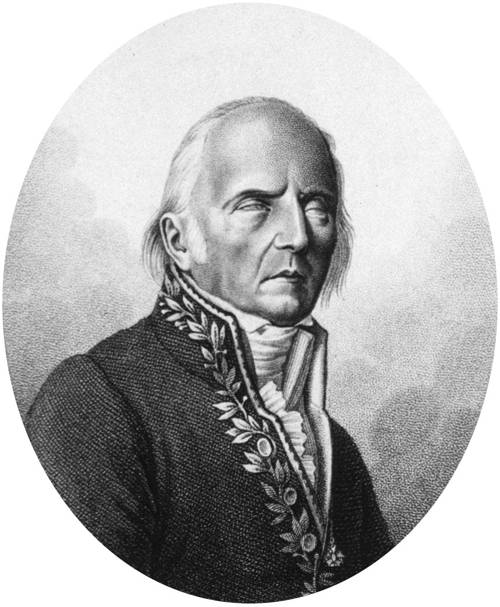
FAQ About Jean-Baptiste Lamarck

Who was Jean-Baptiste Lamarck?
Jean-Baptiste Lamarck was a pioneering French naturalist and biologist who is best known for proposing an early theory of evolution. Born on August 1, 1744, in Bazentin, France, Lamarck made significant contributions to the field of biology, particularly in botany and invertebrate zoology. He developed the theory of the inheritance of acquired characteristics, which suggested that organisms could pass on traits acquired during their lifetime to their offspring.

What is Lamarckism?
Lamarckism is the term used to describe the evolutionary theory proposed by Jean-Baptiste Lamarck. It posits that organisms can acquire traits over their lifetime through use or disuse and then pass these traits on to their offspring. For instance, Lamarck famously suggested that giraffes developed long necks because they stretched to reach leaves in taller trees, and this trait was inherited by subsequent generations.

How did Lamarck's theory differ from Darwin's theory of evolution?
Lamarck's theory, known as Lamarckism, proposed that traits acquired during an organism's lifetime could be passed on to its offspring. Charles Darwin's theory of evolution, on the other hand, is based on natural selection, where inherited traits that confer a survival advantage are more likely to persist over generations. Darwin did not agree with the idea that acquired characteristics could be inherited as suggested by Lamarck.

What was Jean-Baptiste Lamarck's contribution to invertebrate zoology?
Jean-Baptiste Lamarck made significant contributions to the study of invertebrates. In 1801, he published the first comprehensive study of invertebrates, where he classified various species and introduced terms like 'invertebrates' and 'biologist.' He is credited with laying the foundational work for the classification and study of invertebrate species, significantly influencing future biological research.

Was Lamarck's theory accepted during his lifetime?
During his lifetime, Jean-Baptiste Lamarck's evolutionary theory was not widely accepted and was often criticized and overshadowed by alternative theories, including those by Georges Cuvier, who was a contemporary opponent. It wasn't until decades after Lamarck's death that some aspects of his ideas were revisited, although his theory of acquired characteristics was generally disregarded in light of Darwinian evolution.

Did Lamarck coin the term 'biology'?
Yes, Jean-Baptiste Lamarck, along with fellow scientist Gottfried Reinhold Treviranus, is credited with coining the term 'biology' at the beginning of the 19th century. He used it to describe the study of living organisms, differentiating it from the physical sciences.

What are some examples of Lamarck's theory of acquired characteristics?
One of the most famous examples used to illustrate Lamarck's theory of acquired characteristics is the giraffe's neck. Lamarck hypothesized that ancestral giraffes stretched their necks to reach higher leaves, and as a result, elongated necks were passed on to future generations. Another example is the blacksmith's muscles, where he suggested that a blacksmith's developed muscles from work could be inherited by his offspring.

How did Lamarck influence future biological studies?
While Lamarck's specific theory of inheritance of acquired traits was eventually rejected, his ideas about the dynamics of species change over time influenced later evolutionary thought. His work laid the groundwork for others, including Charles Darwin, to explore the mechanisms of evolution. Additionally, Lamarck promoted the study of organic change and adaptation, which are still key concepts in biology today.

What led Lamarck to develop his theory of evolution?
Lamarck developed his evolutionary ideas through extensive studies of plants and animals, particularly invertebrates. His observations of the fossil record and the adaptation of organisms to their environment led him to propose that life evolves progressively towards greater complexity. He believed that environmental changes could lead organisms to adapt physically, thus influencing future generations.

What major work did Lamarck publish on his evolutionary theories?
Lamarck's major work outlining his evolutionary theories is titled 'Philosophie Zoologique' published in 1809. In this work, he articulated his ideas about the transformation of species and the use and disuse of organs that led to acquired traits, which he believed were inherited by future generations. This book is considered one of the foundational texts in the history of evolutionary biology.

Did Lamarck's theory influence Charles Darwin?
Charles Darwin acknowledged Lamarck's contributions to evolutionary theory, even though Darwin's theory of natural selection differed in significant ways. Darwin referred to Lamarck's ideas in his own works, recognizing Lamarck as one of the early proponents of the concept of transmutation of species, a precursor to later evolutionary theories.

How did Lamarck classify organisms in his studies?
Jean-Baptiste Lamarck classified organisms based on their complexity and features, particularly focusing on invertebrates. He introduced a hierarchy ranging from the simplest organisms to the most complex. His classification was innovative at the time and laid the groundwork for the classification systems developed later in the natural sciences.

What was the scientific community's reaction to Lamarck's ideas?
The scientific community during Lamarck's time was largely skeptical of his ideas. Critics, like Georges Cuvier, strongly opposed his theories of evolution and the inheritance of acquired traits. Cuvier argued for catastrophism, suggesting species could go extinct but did not transform. As a result, Lamarck's theories were not widely endorsed during his lifetime.

What impact did Lamarck's early works have on taxonomy?
Lamarck's early works had a profound impact on taxonomy, particularly his methodical approach to classifying organisms based on physiological complexity and behavioral traits. He was one of the first to provide a systematic classification of invertebrates, contributing significantly to the expansion and understanding of biological classification systems.

What influenced Lamarck's views on adaptation and evolution?
Lamarck's views on adaptation and evolution were influenced by his extensive observations and studies of the natural world, particularly plants and invertebrates. The diversity of species and their adaptations to different environments led him to contemplate how organisms change over time. He also considered philosophical ideas prevalent during the Enlightenment that emphasized progress and improvement, applying them to biological processes.

What was Lamarck's impact on modern evolutionary biology?
Lamarck's impact on modern evolutionary biology lies mainly in his pioneering effort to propose that species change over time—a concept that is fundamental to evolutionary biology. Though many specifics of Lamarck's theories were later disproven, his ideas helped stimulate discussion and research that ultimately led to the development of more comprehensive evolutionary theories, such as those by Charles Darwin and others.

Was Lamarck completely wrong about evolution?
While Lamarck's specific mechanism of acquired characteristics being inherited is not supported by modern genetics, his insight that organisms can adapt and change over time was groundbreaking and correct in a broader sense. His contributions are recognized for stimulating further exploration into evolutionary biology.

How is Lamarck's theory viewed today?
Today, Lamarck's theory of evolution is largely regarded as historically significant but scientifically incorrect in its mechanism of inheritance. Modern genetics and evolutionary theory, particularly the Modern Synthesis, have provided clearer understandings of inheritance and natural selection. However, Lamarck's ideas about adaptation and change over time still hold a place in the history of scientific thought.

What educational background did Lamarck have?
Jean-Baptiste Lamarck initially pursued religious studies at a Jesuit seminary but later transitioned to studying medicine and the natural sciences. His exposure to scientific circles in Paris and work at the Jardin des Plantes cultivated his interest in biology, leading to his eventual focus on botany and zoology.

What is the legacy of Jean-Baptiste Lamarck in biology?
The legacy of Jean-Baptiste Lamarck in biology is marked by his early advocacy for the idea that life is not static and that organisms can change over time through adaptations. While his specific theories on inherited acquired traits were not upheld, his work laid foundational ideas in evolutionary biology and inspired future generations to explore the mechanisms of evolution further.
